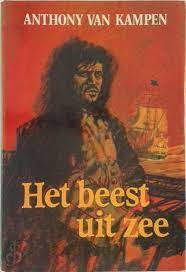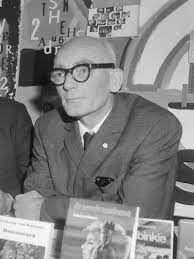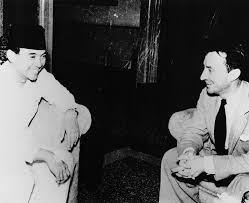
“Het leven van Mary Bryant” (The Life of Maty Bryant) is a three-volume book written by Anthony van Kampen and published in 1968 by Unieboek NV in Bussum, the Netherlands. The book is written in Dutch.
The story revolves around the life of Mary Bryant, a historical figure who was born in Cornwall, England, in 1765. Mary Bryant gained notoriety for her involvement in a daring escape from Australia, where she was sentenced to transportation as a convict.
The first volume of the book likely covers Mary Bryant’s early life in England, her transportation to Australia as a convict, and her experiences in the penal colony. It may explore the hardships she faced and the conditions of convict life during that period.
The second volume likely focuses on the escape itself. Mary Bryant, along with her husband and a small group of fellow convicts, stole a small boat and embarked on a perilous journey across the open sea, hoping to reach the Dutch settlement in Timor.
The third volume may cover the aftermath of the escape, including their capture and subsequent return to England. It also delves into the public’s reaction to their story and the legal consequences they faced.
As a three-volume work, “Het leven van Mary Bryant” provides an in-depth exploration of Mary Bryant’s life, from her origins in England to her remarkable escape and its consequences. It offers readers an opportunity to learn about an extraordinary chapter in Australia’s convict history.
Het beest uit zee, de ondergang van het Compagnieschip Batavia (The Beast from the Sea, the Downfall of the Company Ship Batavia).

In 1971 he also wrote the book “Het beest uit zee, de ondergang van het Compagnieschip Batavia”. The book explores the historical events surrounding the shipwreck of the Batavia, a Dutch East India Company (VOC) ship, in 1629.
The Batavia set sail from the Netherlands to the Dutch East Indies (present-day Indonesia) with a large number of passengers and valuable cargo. However, it encountered rough seas near the Houtman Abrolhos islands off the coast of Western Australia. The ship struck a reef and began to sink.
What followed was a harrowing tale of survival, mutiny, and murder. As the survivors sought refuge on nearby islands, a power struggle ensued among the crew and passengers. Some of the men, led by a man named Jeronimus Cornelisz, engaged in acts of violence and brutality, resulting in the deaths of many fellow survivors.
Anthony van Kampen’s book delves into the details of the shipwreck, the subsequent events on the islands, and the rescue of the survivors. It provides a gripping account of the tragedy, drawing upon historical records and firsthand accounts to recreate the dramatic story.
See also: The Batavia and its many stories
Anthony van Kampen

Anthony Cornelis van Kampen (August 28, 1911 – May 6, 1991) was a Dutch writer who had a particular interest in Dutch New Guinea and the sea. Born in Hellevoetsluis, Netherlands, he studied commercial sciences in Rotterdam before embarking on a career as a journalist and working in the publishing industry.
Van Kampen’s writings focused on raising awareness about Dutch New Guinea, which was relatively unknown in the Netherlands at the time. In his Jungle trilogy, consisting of “Jungle Pimpernel. Controller B.B” (1949), “The Last Bivouac” (1950), and “The Lost Valley” (1951), set in New Guinea, he vividly depicted the way of life of the Papuans, aiming to generate more interest in the Dutch colony.
As mentioned above he wrote “The life of Mary Bryant”.
Anthony van Kampen was a travel writer with a deep fascination for the sea and maritime subjects. In addition to his New Guinea trilogies, he wrote about the Amazon basin and Greenland.
In 1946, he founded “De Blauwe Wimpel,” a monthly magazine focusing on shipping and shipbuilding in the Low Countries. He also gained popularity for his “Ketelbinkie” trilogy, aimed at older boys, which includes “Ketelbinkie” (1946), “Ketelbinkie’s mate’s time” (1947), and “Kapitein Jan van Leeuwen” (1948).
In recognition of his contributions, Anthony van Kampen received the silver medal of honour from the municipality of Bergen in 1986. He is buried at the general cemetery in Bergen, North Holland.


